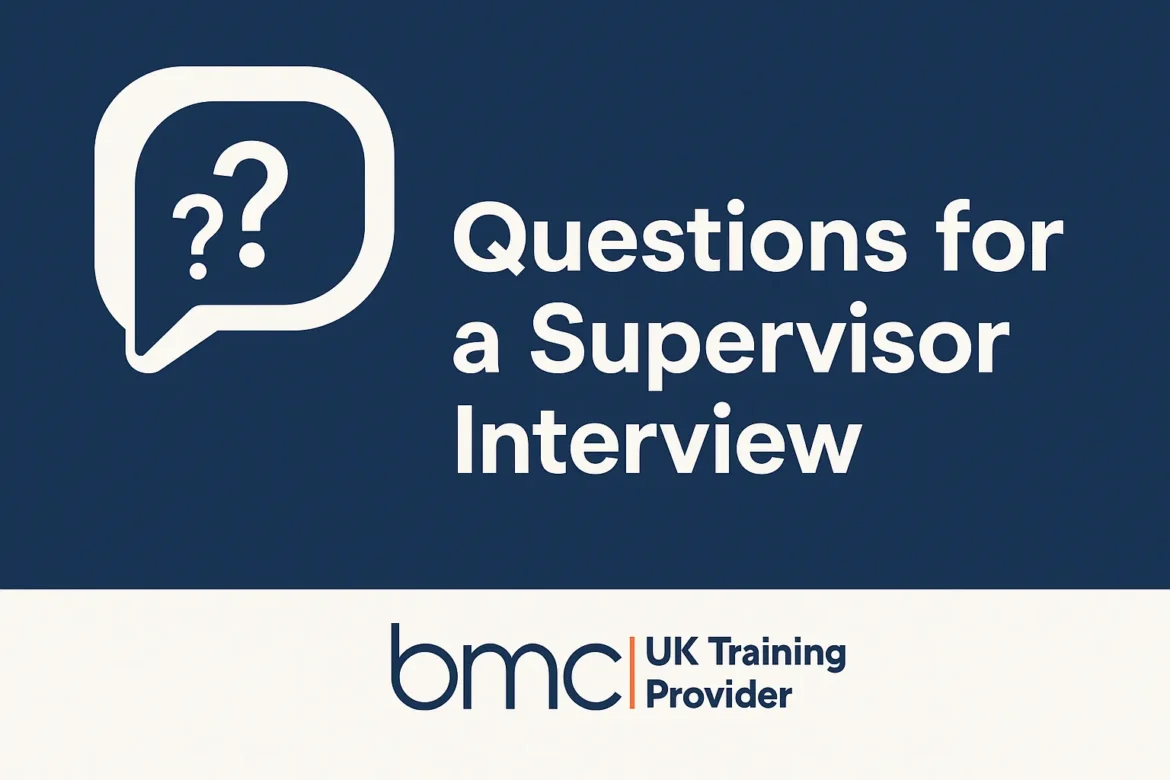Transitioning from a team member to a supervisor is a significant career leap. It demands a shift in mindset, skills, and approach. For those in management and leadership training, the supervisor interview is your final exam. But what separates a good answer from a great one? It comes down to anticipating the right questions.
This comprehensive guide is built on the exact micro-intents of search engine users—what they truly want to know about questions for a supervisor interview. We’ll equip you with the expert knowledge and real-world experience to demonstrate your leadership potential, strategic thinking, and readiness to manage, ensuring you stand out and secure that promotion.
What Are the Core Categories of Supervisor Interview Questions?
A successful supervisory interview isn’t just about answering questions; it’s about showcasing a holistic leadership profile. Recruiters use carefully structured questions to assess different dimensions of your readiness.
The “What Is?”—Defining the Supervisor’s Role
These questions test your fundamental understanding of the role’s purpose and your leadership philosophy.
The “Why?”—Assessing Motivation and Fit
The interviewer wants to know why you want this job and why you are the best fit for this specific team.
- “Why are you interested in moving into a supervisory role at this specific time?” (Tests career alignment)
- “Why should we promote you over other internal/external candidates?” (Tests confidence and unique value proposition)
- “Why do you think this team needs a new supervisor right now?” (Tests situational awareness and strategic insight)
Read Also : Assistant Restaurant Manager Job Description: A Comprehensive Guide
How to Apply the STAR Method to Leadership Scenarios
The most effective way to answer behavioural questions—which comprise the majority of supervisor interviews—is by using the STAR (Situation, Task, Action, Result) method. This demonstrates your experience and expertise by turning abstract concepts into concrete, measurable outcomes.
Applying STAR to Common Supervisory Challenges
Example Question & STAR Response Outline:
Q: “Tell me about a time you had to manage a significant conflict between two team members.”
- S (Situation): “Two key developers were clashing over code ownership, delaying the project by three days.”
- T (Task): “My task was to mediate the situation, de-escalate tensions, and ensure the project timeline was met.”
- A (Action): “I held separate, confidential one-on-one meetings, actively listening to both sides. I then convened a joint meeting, establishing clear ground rules. We collectively defined ownership boundaries and revised the workflow using a shared documentation system.”
- R (Result): “The conflict was resolved within 24 hours. The new system reduced similar issues by 80% over the next quarter, and the project finished on time.”
You may also be interested in: Composite Risk Management Meaning: A Complete Guide for Modern Leaders
When to Ask Your Own Strategic Questions
An interview is a two-way street. Asking insightful questions demonstrates Authority and Trust—it shows you are vetting the role and the company as much as they are vetting you.
Asking “Up” to the Interviewer
- “What are the biggest challenges this team is currently facing that a new supervisor will need to address immediately?” (Shows you’re ready for reality)
- “How is success measured in this role, both quantitatively and qualitatively?” (Shows focus on results)
- “What are the opportunities for professional development for the person in this role?” (Shows commitment to continuous improvement)
You may also be interested in: Beyond the Checklist: What is Composite Risk Assessment and Why it Matters

Is Coaching Different from Supervising?
Candidates often confuse these roles. A clear distinction shows maturity in your management and leadership perspective.
FAQs: Addressing the Hidden Interview Concerns
These questions are based on common search queries that reflect deeper candidate concerns.
Q: How do I answer a question about managing former peers?
A: Acknowledge the challenge with transparency. Focus your answer on establishing clear, professional boundaries and trust. State that you will treat everyone equally and fairly, judging performance based on objective metrics and the new expectations of the supervisory role. Emphasize that your relationship will shift from peer-to-peer to professional supervisor-report, based on mutual respect for the organization’s goals.
Q: What is the biggest mistake a new supervisor can make?
A: The biggest mistake is micro-managing. Explain that you understand your role is to enable the team, not do the work. Demonstrate that your strategy is to delegate effectively, provide necessary resources, and step in for support or course correction, but ultimately trust the team’s expertise. This showcases your Authority and confidence in your team.
Q: Should I bring up salary in the first supervisor interview?
A: Generally, no. Focus the first interview entirely on your qualifications, expertise, and suitability for the role. Salary discussions are best reserved for a follow-up or when the interviewer initiates the topic. Prematurely focusing on compensation can detract from your focus on the value you bring to the team and the company.
You may also be interested in: Understanding the Core Functions of an Assistant Manager: A Guide to Leadership and Support
Take the Next Step in Your Leadership Journey
Mastering the interview is just one step. True supervisory and managerial success requires a foundational understanding of business strategy, people management, and dynamic leadership styles.
BMC Training offers premier management and leadership training designed to equip you with the industry-recognised expertise needed to excel in leadership roles, manage complex projects, and drive organizational change. Our comprehensive catalogue covers vital disciplines including business strategy, human resources, project management, and strategic decision-making. We distinguish ourselves by providing practical insights and tools that translate directly to on-the-job success, validated by our commitment to industry-leading standards.
Ready to move beyond the interview and become the leader you were meant to be?
Invest in your professional development today!
Contact BMC Training Now to Select Your Course!
Read Also : What is a Chief Management Officer (CMO)? Your Definitive Guide


